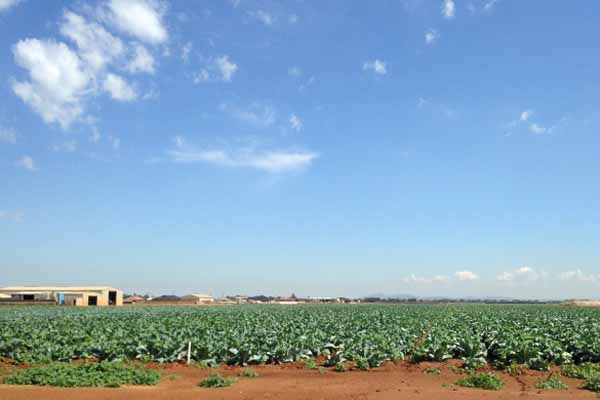More investment is needed in water infrastructure to support farmers at Werribee South if food supplies are to be secured for a growing population, a new report finds.
Melbourne’s foodprint – what does it take to feed a city? estimates almost 500 litres of water per person per day is needed to feed Melbourne.
The report’s author, Melbourne University’s Dr Rachel Carey, says Werribee South is an important agricultural area, providing 10 per cent of the state’s vegetables. But more work needed to be done to “drought-proof” the food bowl, Dr Carey said.
“That’s 85 per cent of Victoria’s cauliflowers, 53 per cent of the broccoli, and 34 per cent of the lettuce,” she said. “That is a large contribution to the state’s overall supply.”
Dr Carey said that with Melbourne’s population set to increase to about eight million people by 2050, it was vital to plan for food security.
“This means we need 60 per cent more food produced,” she said.
Dr Carey believes there needs to be more work done to recycle water, to make sure the pipes are there to get it to farms and to store it for later use. “We need more water available to farmers during the farming season,” she said.
With new housing developments encroaching on farming areas, urban sprawl was another major issue facing farmers.
Dr Carey said increasing commuter traffic on the roads could pose a problem for food freight. “It’s important that our market gardeners are protected,” Dr Carey said.
The state government set aside $11 million in this year’s budget to fund a third of the upgrade needed for the Werribee South irrigation system.
The remaining two-thirds is due to come from the federal government and Southern Rural Water.
The report found other food security issues include food waste, with almost one million tonnes of food thrown out every year in the city, while about four million tonnes of greenhouse gases was produced in growing the state’s food.
– With Sumeyya Ilanbey







